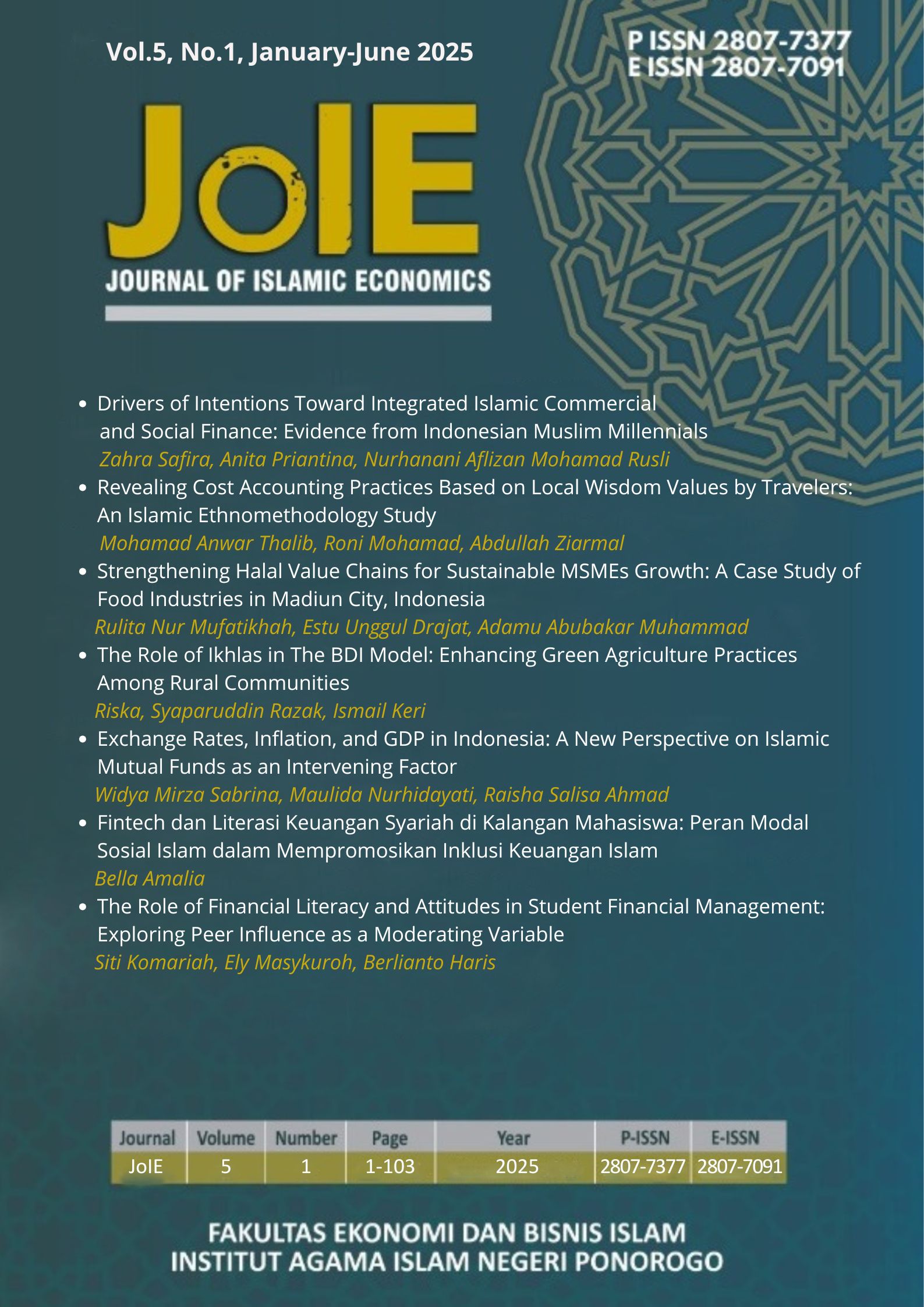Exchange Rates, Inflation, and GDP in Indonesia: A New Perspective on Islamic Mutual Funds as an Intervening Factor
DOI:
https://doi.org/10.21154/joie.v5i1.10344Keywords:
Exchange rate, inflation, Islamic mutual funds, GDPAbstract
Introduction: Gross domestic product (GDP) is an indicator used to determine the country's economic situation shown in a certain period. The success of a country's economic growth can be seen from the country's GDP level. Research Methods: This research aims to test and analyze the influence of exchange rates and inflation on GDP in Indonesia through the mediation of Islamic mutual funds. This research uses quantitative methods using time series data, namely quarterly data for 2016-2023. Results: The results shows that the exchange rate has a positive and significant effect on GDP, inflation and Islamic mutual funds have a positive and insignificant effect on GDP, the exchange rate has a positive and significant effect on Islamic mutual funds, inflation has a negative and significant effect on Islamic mutual funds, and although mutual funds have the potential to increase GDP through investment, exchange rate depreciation and high inflation will still have a negative impact on the economy as a whole. Conclusion: Exchange rates and inflation play a crucial role in driving economic growth and the development of Islamic mutual funds. The government needs to maintain exchange rate stability through monetary and fiscal policies, as well as implement inflation control measures to preserve the public's purchasing power and investment interest.
Downloads
Published
Issue
Section
License
Copyright (c) 2025 Widya Mirza Sabrina, Maulida Nurhidayati, Raisha Salisa Ahmad

This work is licensed under a Creative Commons Attribution 4.0 International License.
JoIE: Journal of Islamic Economics allows the author(s) to hold the copyright without restrictions and allow the author(s) to retain publishing rights without restrictions, also the owner of the commercial rights to the article is the author.


















